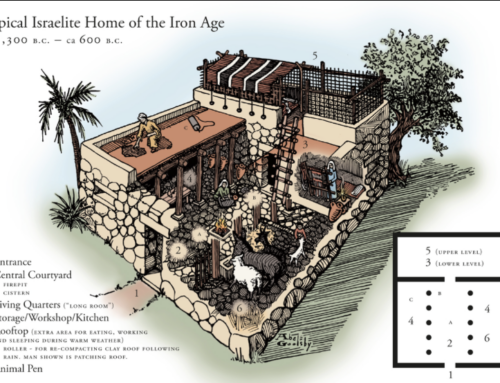One of the aims of the Napa Institute Conference is to bring together Catholic philanthropists with leaders of Catholic apostolates and ministries to achieve positive relationships for ministry and outreach.
Some critics have blasted the institute and conference for being some kind of Catholic Bohemian Grove–a secret meeting of fat cats (or fat Catholics) in order to plan a takeover of the church. They are also suspicious of the conservative complexion of the group–distrusting what they see as an unholy alliance between well heeled Catholics and the Republican Party.
I attended the conference for the first time last week and it is true that there were wealthy Catholics there and I suspect some good relationships were built up to further the work of various Catholic ministries. On the political side former VP (and former Catholic) Mike Pence was one of the speakers. Too close to politics for my liking, but his talk was pretty much boilerplate political “I’m like you.Please love me” stuff. Any politician would have delivered much the same. Yawn.
What seem obvious to me is that ministry needs money. If we are to build schools, publish books, proclaim the faith and live the faith by helping the needy, evangelizing and promoting the faith then it costs money. That wealthy men and women are called to support the church is nothing new, and it is by being good and generous stewards of their wealth that the wealthy serve God and work out their salvation with fear and trembling.
So why the embarrassment about wealthy Catholics? Has wealth been a cause for sin in the world? Of course. “The Love of money is the root of all evil.” Remember it is the LOVE of money that is the root of all evil. Loving money or getting money by illicit means is evil, but money itself is neutral.
What concerns me about so many Catholics is that there seems to be a kind of Manichean distrust of material goods. There is a false idea that there is something intrinsically evil about wealth and therefore there is something intrinsically good about being poor, and this valorization of poverty is too often translated by regarding what is cheap, poor quality and shoddy as somehow being virtuous. I call this “faux Franciscanism”. The logic goes like this:
Poor people are blessed
It must be virtuous to be poor
I will be poor in order to be virtuous
Poor people have cheap things
Cheap things are poorly crafted and shoddy
Shoddy, poor quality things signal my poverty
I am virtuous because the stuff I have is poor quality
I am virtuous because I’m thrifty.
See how virtuous and holy I am because I drive a crappy little car.
See how holy I am because I dress badly and look like a hobo.
Now don’t get me wrong. I have all the respect in the world for authentic Franciscans and all other religious who have embraced the vocation of poverty for the kingdom of God. I am more personally drawn to the Benedictine ideal of communal wealth and personal poverty, but both examples of simplicity of life are worthy and to be admired.
What I call “faux Franciscanism” is a kind of mirror image of the vanity of wealth in the same way that overly fastidious eating is a reverse side of the gluttony coin and miserliness is the flip side of prodigality.
The challenge for disciples of Jesus who are blessed with excess wealth is to avoid all vanity and pride–recognizing that everything they have is a gift. Even the brains and capability for hard work by which they may have earned their wealth is itself a gift. It is their responsibility to use those gifts for the kingdom of God.
I see wealthy American Christians doing just this at every level. I see them in my parish. I see them in the Diocese. I see them in our schools and universities and apostolates of all kinds. This mission of being good stewards with wealth is vital if the faith is to be maintained and grown, and therefore I encourage young people who are called to be businessmen and women to make as much money as they can and to use that money to bless others–first of all their family and then the family of the church.
Joyful and generous giving not only helps sustain and promote the church. It is also good for the soul. Generous giving breaks the tyranny of greed.
Finally, generous giving proves the so much misunderstood Beatitude: “Blessed are the poor”
Why are they blessed? Not because they are poor, but because “They know their need of God.”
Poverty as part of a religious calling provides a visual sign and reminder: “Here are men and women who most of all know their need of God.”
Generous giving by those who God has blessed with wealth reminds the wealthy of their need of God. By giving prodigiously they are saying, “This money is not my God. I need the true God more than this money.”






Well said Father.
Yes, I do find it insensitive and bordering on masochism when suffering, loss, and poverty are seemingly glorified, used to put others down (i.e., hurt feelings of others dismissed as invalid), or worn as a badge of moral superiority (i.e., closer relationship with God). There is this prevalent idea that people in 3rd world countries are more happier and grateful compared to the 1st world people, where we read reports of suicide, depression and unhappiness etc.
It’s not necessarily the case. Suffering in and of itself doesn’t yield virtue, but can make you hard, pessimistic, and bitter. Chances are, there are high suicide rates in poorer nations, more often than not, due to human cruelty, bereavement, and the vicious cycle of poverty. So playing the (pain-level) comparison games isn’t helpful, it’s toxic positivity.
We need grace, every day. An attitude of gratitude and healthy perspective, as well as an ordered desire for goods. Period.
“Two things I ask of you; do not deny them to me before I die: Remove far from me falsehood and lying; give me neither poverty nor riches; feed me with the food that I need, or I shall be full, and deny you, and say, “Who is the Lord?” or I shall be poor, and steal, and profane the name of my God.”
– Proverbs 30:7-9.